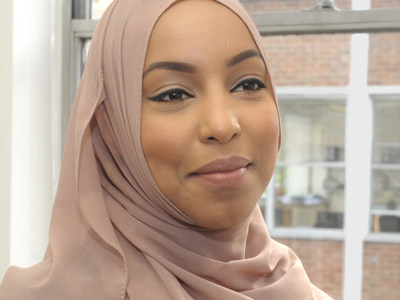Neglect contributed to the death of nine-year-old Dylan Cope, an inquest finds
The death of nine-year-old Dylan Cope at University Hospital of Wales could have been avoided and neglect contributed, a coroner has concluded.
Posted on 24 May 2024
Dylan died on 14 December 2022 after being diagnosed with a ruptured appendix and sepsis.

Dylan Cope
Giving a narrative conclusion, senior coroner for Gwent Caroline Saunders, said Dylan’s death would have been avoided had he not been discharged from Grange University Hospital, Cwmbran, on 7 December 2022.
Dylan first attended A&E at the Grange on 6 December at approximately 18.30 on referral of his GP for suspected appendicitis. Here he was seen by a number of medical staff including a male clinician who the hospital has not been able to identify. According to the family, this clinician was instrumental in reassuring Dylan’s father, Laurence Cope, that it was safe for Dylan to be discharged.
The court heard how, during his first admittance to the Grange, no blood tests or scans were carried out. Dylan was diagnosed with flu and the discharging clinician advised that Dylan should rest up, drink fluids, make sure to pass urine twice a day, give calpol and/or neurofen.
The court heard from a nurse practitioner who believed Dylan was going to be seen by a registrar, but this did not happen.
Independent medical expert Mr Singh, consultant paediatric surgeon from Nottingham University Hospital, said the GP note, which identified appendicitis and referenced Dylan “guarding” the right side of his abdomen, was important adding, had Dylan been referred to a surgeon that night, he would have been diagnosed with appendicitis and kept in hospital.
He explained that clinicians should rule out appendicitis, “by all possible means” before moving on to other diagnoses. He told the court that he has seen children presenting similar symptoms to Dylan improve.
The coroner said that the nurse practitioner’s failure to refer to the GP’s referral and her subsequent examinations were below the acceptable level of care.
Dylan was discharged at 1.15am on 7 December by a nurse who told the court an unidentified doctor had told him Dylan could be discharged and gave him a completed discharge notification.
The court was told by an independent expert that Dylan was discharged with an increased heart rate and temperature and that these observations were significant.
His father was given a cough and cold advice sheet and told that Dylan should start to improve by the Saturday, four days later. At the time Dylan was discharged, the medical team had no concerns of appendicitis.
A medical expert report stated had Dylan’s father been given the abdominal safety netting advice sheet, it’s likely he would have brought Dylan back sooner.
His condition did not improve, and, on 10 December 2022, his father rang the emergency number on the A&E discharge sheet. He was advised to contact NHS 111.
Laurence Cope spent more than two hours on hold with NHS 111, the court heard that calls should be answered within 45-60 minutes. When his call was answered, the court was told that, based on the information provided, the call handler advised Dylan’s father to wait from a call back from a clinician.
The coroner said that there was a failure by the 111 call handler to ask the right questions that would have resulted in the despatch of an ambulance but that this did not alter the outcome.
While waiting for a call back from NHS 111, Dylan’s condition deteriorated so his father took him back to A&E. In a report read out to the court, independent expert Dr Nadel, a consultant paediatric intensivist, said that at the time Dylan represented to The Grange his chances of survival were 50 per cent or less, he added that had the care given at this time not been suboptimal Dylan’s outlook could have improved.
He was transferred to University Hospital of Wales (UHW) and during this time, four hours after the initial call, the NHS 111 clinician called back.
On presentation at UHW, Dylan was diagnosed with septic shock, and a burst appendix.
Dylan had surgery to remove his appendix. Approximately 10 minutes before surgery, and again 10 minutes into surgery, Dylan went into cardiac arrest. Both incidents were dealt with quickly.
Post surgery, Dylan was transferred to Paediatric Intensive Care Unit where he had two further cardiac arrests and was put on life support. On Tuesday 13 December 2022 his parents were told that he was nothing more that could be done for him, and it was advised that support should be gradually withdrawn.
The following day, Dylan went into irreversible septic shock and the insulin that was keeping his heart going was stopped. Over the next hour his heart slowed, and Dylan died with his parents by his side.
Following the conclusion of the inquest, speaking on behalf of the family, Dylan's mother Corinne Cope said:
“We appreciate the coroner’s findings. From our own investigations we already felt that Dylan's death was preventable. During the inquest process, we've painfully learned that the Grange University Hospital, touted as a 'state-of-the-art super-hospital,' had what we saw as chaotic and shambolic processes that led to both extensive systemic and human errors.
“Not within the scope of the inquest is Aneurin Bevan's internal investigation into Dylan's death, which we believe was inadequate in critical areas. This added to our distress and in our view hindered the identification of key staff involved during Dylan's first visit to the Children’s Emergency Assessment Unit. We believe one of these staff members to be a doctor who may not be honestly speaking about seeing Dylan and Laurence that night. Making genuine errors is one thing, but deliberately avoiding responsibility as a healthcare professional is shameful.
“We understand that no single person is entirely to blame for the multiple failures, but a true no-blame culture should still include accountability and learning. Every individual must accept responsibility for their actions, regardless of whether their errors were accidental or unintentional.
“The inquest also did not address concerns from two independent medical experts that Dylan's treatment on his return to The Grange Hospital on December 10, when he was critically ill, was suboptimal and that better care could have improved his chances of survival.
“There is no greater opportunity for learning than from a child's preventable death. We appreciate that some measures have been implemented but remain deeply concerned that the Health Board has not demonstrated all the necessary learning. Many improvements were made only because of our persistent challenges, which raises concerns for future learning and patient safety.
“We have had to fight for answers that to us were painfully obvious and we believe that we are not the only family that will have experienced this. We feel that, instead of being combative towards families during the investigation process, the Health Board should have been focused on achieving adequate processes and clinical excellence. If that had been their priority in the past, we might not be here today. The system is broken and urgently needs change.
“We believe our agony during this long process must have been evident. We thank those who have shown us compassion. We wanted Dylan to be recognised and respected throughout this process.
“Dylan was our youngest son, a little boy with his whole life ahead of him. As a family, we have to adjust to being four instead of five; our circle is forever broken. This pain will last our entire lives, not just through this hearing.
“Dylan is central to all of this. The magnitude of losing his life has often been overshadowed by others minimising and thwarting attempts to uncover the truth. For our child to suffer and die from an easily treatable condition is unimaginable for most parents. This is now our living nightmare.”
Dylan’s parents are represented by Leigh Day solicitor Firdous Ibrahim who said:
“It is rare for a coroner to find neglect in an inquest involving concerns with medical treatment which further highlights what a tragic and avoidable loss this was. The coroner’s conclusion found there were a significant number of failures by multiple healthcare professionals that would have prevented Dylan’s death. While improvements in care have sadly come too late for Dylan, we hope that it means another family doesn’t have to go through similar heartache.
“Corinne and Laurence Cope have experienced something no parent should have to go through and have had to wait almost a year and a half to have some of their questions answered. While nothing can console Dylan’s family and friends, it has been a privilege to have been able to represent them during this process and help them get some of the answers they have been looking for.”



